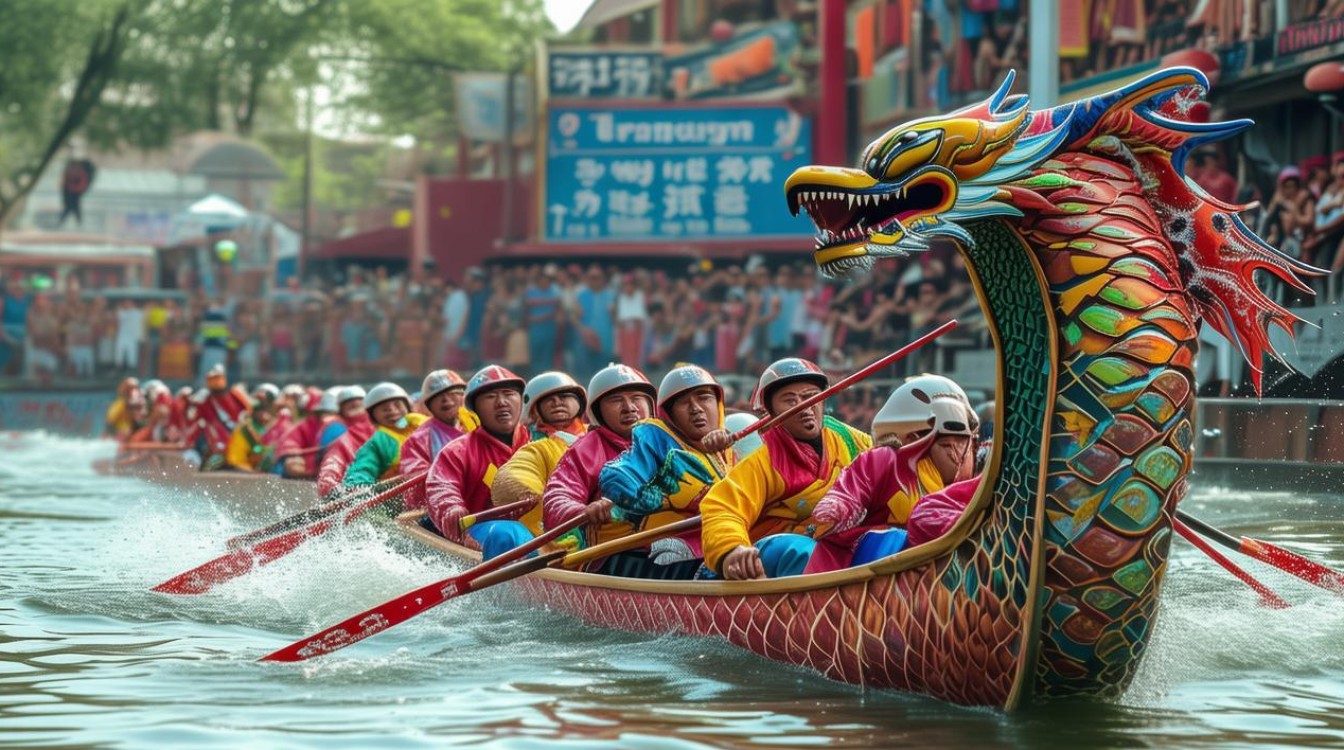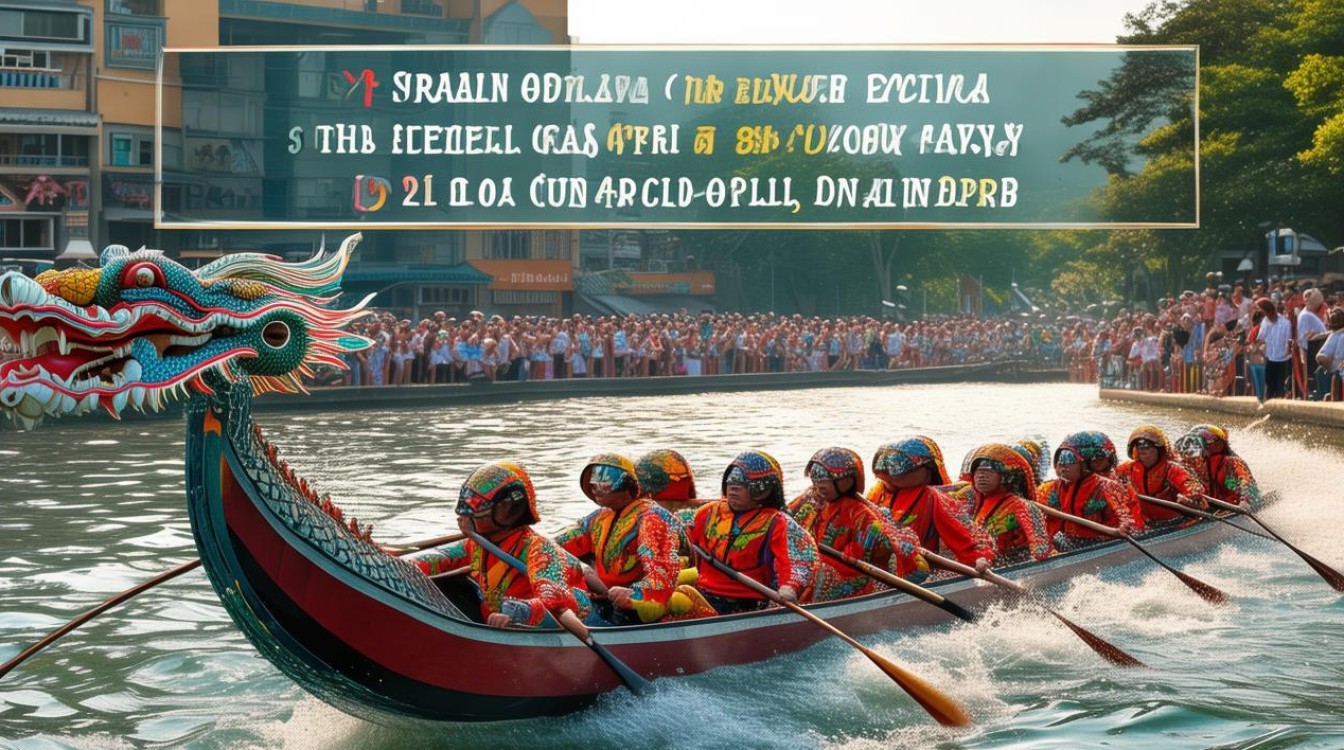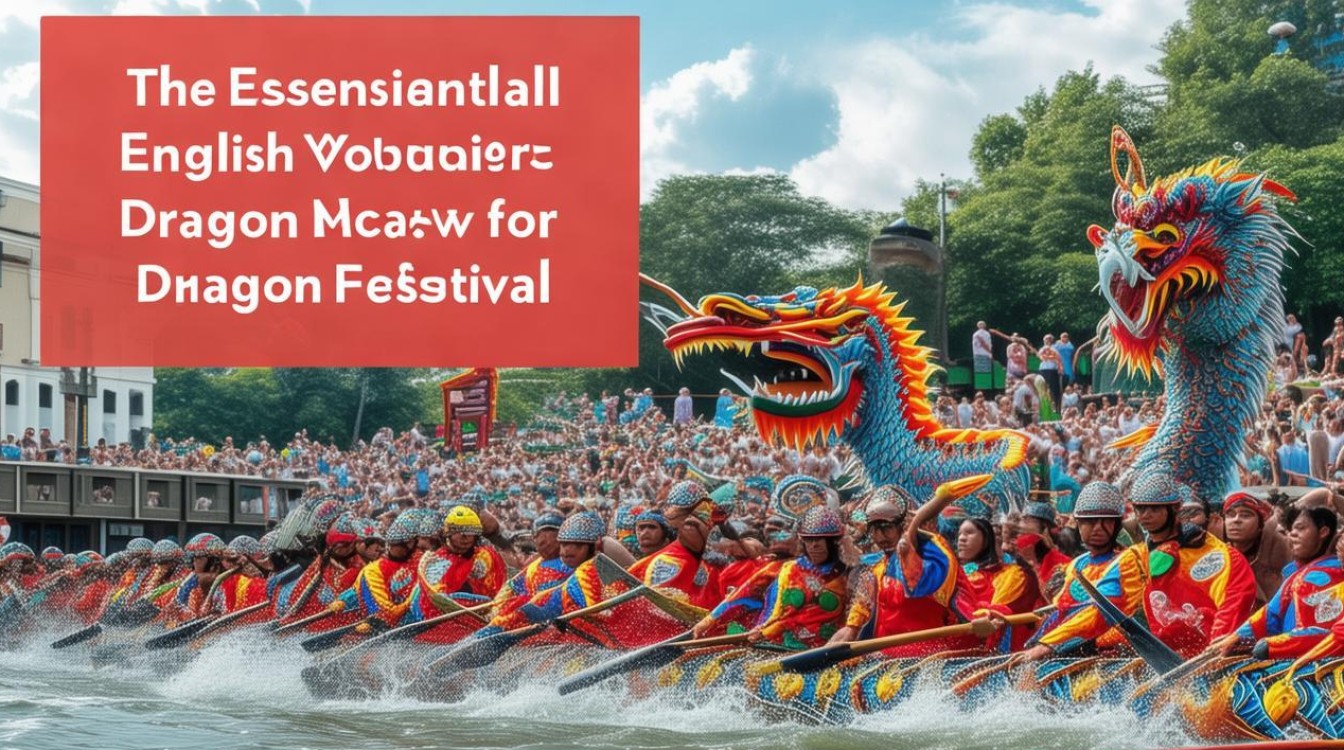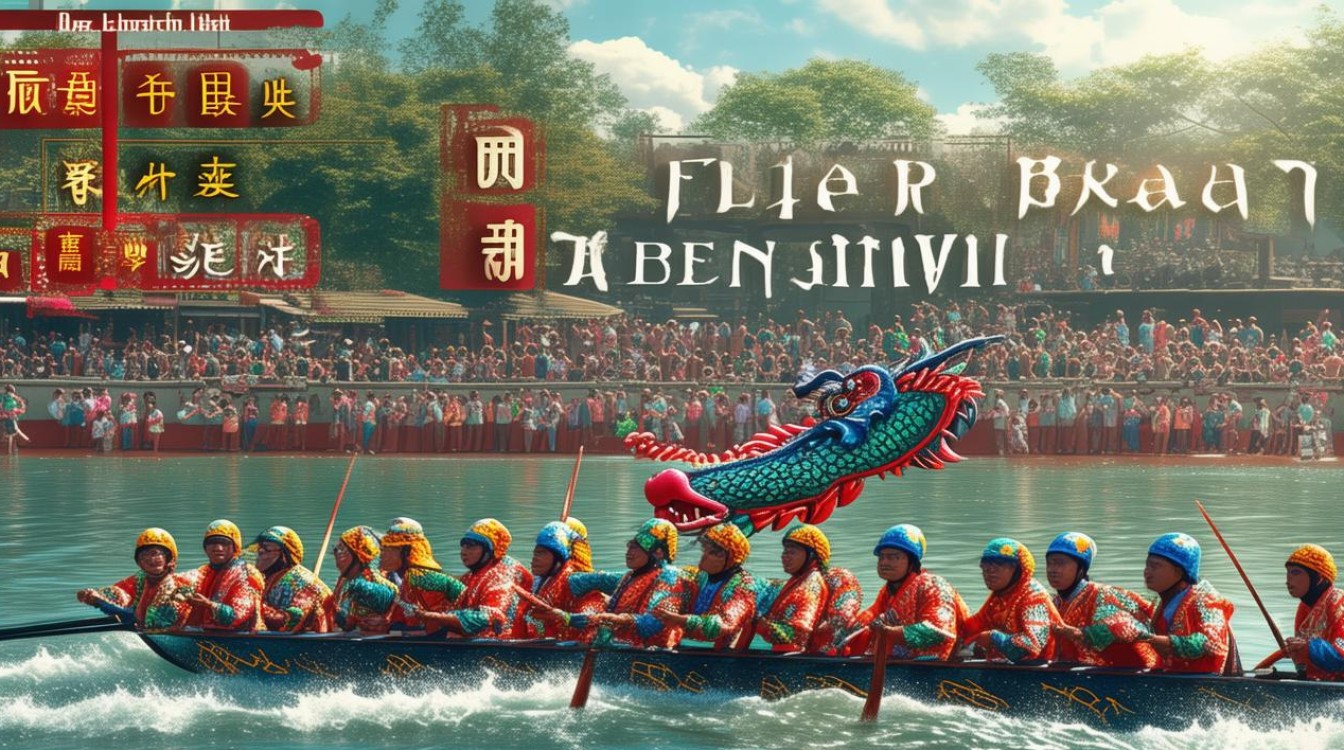The Dragon Boat Festival, known as Duanwu Festival (端午节) in Chinese, is a vibrant cultural celebration with deep historical roots. Whether you're a language learner, a traveler, or simply curious about Chinese traditions, mastering the key English terms related to this festival will enhance your understanding. Below is a comprehensive list of essential vocabulary, along with cultural insights.

Festival Names & Origins
- Dragon Boat Festival – The most common English name, derived from the iconic boat races.
- Duanwu Festival – The Mandarin name (端午节), where "duan" (端) means "beginning," and "wu" (午) refers to the fifth day of the fifth lunar month.
- Double Fifth Festival – A less common name, referencing its date on the 5th day of the 5th lunar month.
The festival honors Qu Yuan (屈原), a patriotic poet from ancient China who drowned himself in protest against corruption. Locals raced boats to save him and threw zongzi into the river to prevent fish from eating his body.
Key Traditions & Activities
Dragon Boat Racing (赛龙舟, sài lóngzhōu)
- Dragon boat – A long, narrow canoe-style boat decorated with a dragon head and tail.
- Paddlers – The rowers who power the boat.
- Drummer – A team member who beats a drum to synchronize rowing.
- Regatta – A competitive boat race event.
Dragon boat racing symbolizes unity and teamwork, making it a highlight of the festival.

Zongzi (粽子)
- Sticky rice dumpling – The common English translation for zongzi.
- Bamboo leaves – Used to wrap the rice and fillings.
- Fillings – Common varieties include pork, red bean paste, egg yolk, and chestnuts.
Zongzi represents the food offerings made to Qu Yuan and is a staple during the festival.
Realgar Wine (雄黄酒, xiónghuáng jiǔ)
- A traditional alcoholic drink infused with realgar powder, believed to ward off evil spirits.
- Often sprinkled around homes or consumed in small amounts.
Protective Customs & Symbols
Five-Colored Threads (五色线, wǔsè xiàn)
- Braided threads in red, green, yellow, white, and black, tied around wrists for protection.
- Symbolizes longevity and good fortune.
Mugwort & Calamus (艾草与菖蒲, àicǎo yǔ chāngpú)
- These herbs are hung on doors to repel insects and evil spirits.
- Aromatherapy sachets (香包, xiāngbāo) filled with herbs are also popular.
Silk Pouches (香囊, xiāngnáng)
- Small embroidered bags containing herbs, worn for luck.
Mythological & Historical Terms
- Qu Yuan – The poet whose death inspired the festival.
- Miluo River (汨罗江) – Where Qu Yuan drowned.
- Chu State (楚国) – The ancient kingdom where Qu Yuan served as a minister.
Understanding these terms adds depth to the festival’s cultural significance.

Modern Celebrations & Global Influence
- International dragon boat races – Held in countries like the U.S., Canada, and Australia.
- Cultural festivals – Many cities host events featuring food, music, and crafts.
- UNESCO Intangible Cultural Heritage – The Dragon Boat Festival was inscribed in 2009, recognizing its global importance.
Useful Phrases for Travelers
- "When is the Dragon Boat Festival this year?"
- "Where can I watch dragon boat races?"
- "What fillings are in these zongzi?"
- "Why do people hang mugwort on their doors?"
These questions help engage with locals and deepen cultural appreciation.
The Dragon Boat Festival is more than just a holiday—it’s a living tradition blending history, sport, and culinary arts. By learning these terms, you gain not only language skills but also a richer connection to Chinese heritage. Whether you’re tasting zongzi for the first time or cheering at a dragon boat race, these words will guide you through the celebration.




